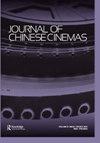Dislocation and displacement: An analysis of Wang Jiuliang’s Plastic China
IF 0.4
3区 艺术学
0 FILM, RADIO, TELEVISION
引用次数: 2
Abstract
Abstract This essay uses the concepts of place and space to analyze Wang Jiuliang’s environmental documentary film Plastic China (2016) by examining three kinds of dislocation and displacement: the importation of Western trash to China, Yijie’s migration from Sichuan to Shandong, and Kun’s transformation from an agricultural peasant to an industrial worker in post-socialist China. Building on previous scholarship on dirt, rubbish, and ruins, the essay explores how the film’s focus on trash—“matter out of place”—sustains a critique of global consumerism, capitalism, and eco-colonialism. Cinematic features, such as the spatial imbalance the film constructs between its human subjects and the plastics processing plant where they work, are discussed. Yijie’s longing for home, a preindustrial place untouched by modernization and globalization, is evoked by the use of nondiegetic music. Her desire to go to school, a major narrative theme, is interpreted to indicate her spatialized alienation and non-locatable subjectivity as a migrant child. Although Kun is a native of the town where the processing plant stands, he experiences displacement without moving, as his hometown has been ecologically degraded and thus rendered inhabitable by the intrusion of toxic trash. Both Yijie and Kun, representing millions of Chinese peasants uprooted from the soil, are trapped in a one-way, no-return journey from place to space.错位与位移:王九良的《塑料中国》分析
本文运用地点和空间的概念,考察了后社会主义中国的三种错位和位移:西方垃圾进入中国、易杰从四川移居山东、坤从农业农民转变为产业工人。在前人对泥土、垃圾和废墟的研究基础上,本文探讨了影片对垃圾——“不合位置的物质”——的关注如何维持对全球消费主义、资本主义和生态殖民主义的批判。电影的特点,如电影构建的空间不平衡之间的人类主体和他们工作的塑料加工厂,讨论。一杰对家乡的渴望,一个未受现代化和全球化影响的前工业化的地方,通过使用非叙事音乐来唤起。她对上学的渴望是一个主要的叙事主题,被解读为她作为一个流动儿童的空间异化和不可定位的主体性。虽然昆是加工厂所在城镇的本地人,但他没有搬家,因为他的家乡已经生态退化,因此有毒垃圾的入侵使他无法居住。义杰和坤都代表着数百万背井离乡的中国农民,他们被困在了从一个地方到另一个空间的单向、不归路中。
本文章由计算机程序翻译,如有差异,请以英文原文为准。
求助全文
约1分钟内获得全文
求助全文

 求助内容:
求助内容: 应助结果提醒方式:
应助结果提醒方式:


